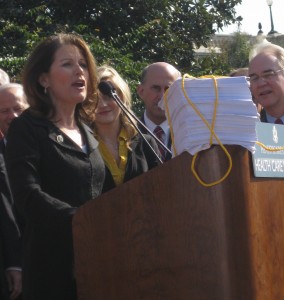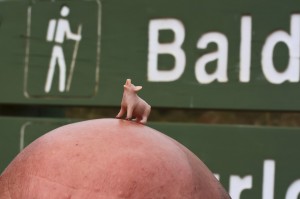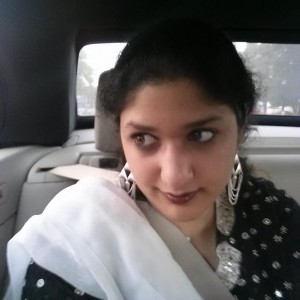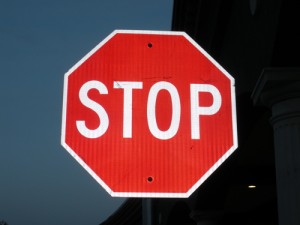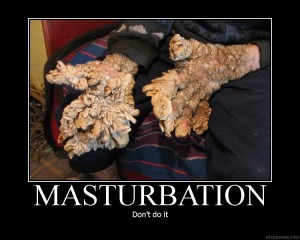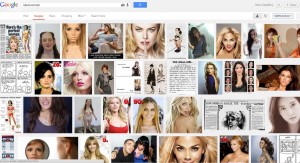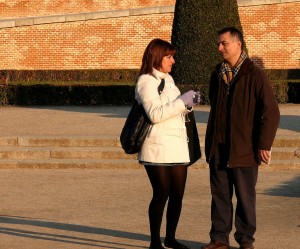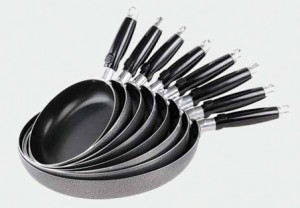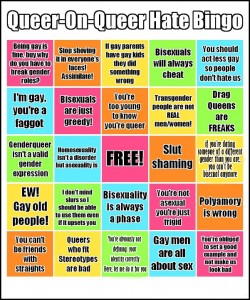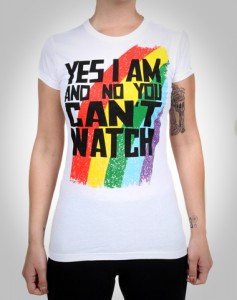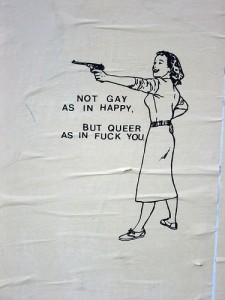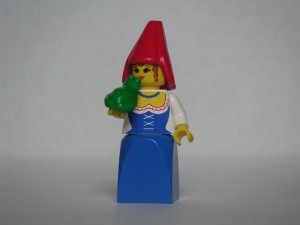In case you haven’t noticed yet, I am a feminist. Among the many other labels that I occasionally affix upon my person is “slut” (only in contexts where the word is recognized for its reclaimed value). I believe in full reproductive rights and agency, comprehensive sex ed, the valuing of sex for pleasure, the destigmatization and full legalization of all forms of sex work, and the end of STI-shaming.
So you’d think that I’d be against the notion of sex-negativity in feminism. Sex-positivity a good thing for people like me, right?
Sex-positivity might mean something different in an academic and/or political sense, but I will address the ways in which self-identified sex-positive people manifest that particular ideology. In other words, I’m exclusively dealing with sex-positivity as it exists, not as we hope it exists. I intend to reflect lived realities, not to straw-man sex-positivity. The attitude that we cannot ever judge anyone for consensual sex acts (or even judge the acts themselves outside of the individuals participating in them) has become the de facto one among the sex-positive types I’ve met, read, and otherwise encountered.
I find the notion that all sex is awesome as long as there was consent to be more than a little troubling.
On the surface, it does seem awesome. We live in a society that pathologizes mere sexual attraction when it falls outside a very narrow set of norms (let alone acting on those attractions) as well as de-prioritizes consent. Not being judgmental about anything and emphasizing consent appears to be a great counter to all that — and it can be. The problem is that we should be able to express criticism of consensual acts, especially when considering their greater context. At the very least, we should feel okay with expressing our discomfort about them. Sex-positivity can be used as a bludgeon by which to silence criticism of anything sex-related.
When I’ve expressed my discomfort regarding dominant poly men who date lots of submissive women who aren’t allowed to date anyone else (with the men often excusing their sexist behavior towards other women via their kink), I’ve been accused of being sex-negative. When I’ve brought up how sexist it is that porn, i.e. the way that most people learn about sex, primarily features fairly cis male-centric sexual acts, I’ve been told that those women consented, therefore I was being condescending towards them. When I’ve brought up the effect that depicting only a single body type as attractive might have on people’s expressed preferences, I’ve been told that I was shaming people for their sexual preferences and that I should just accept them.
Initially, all that wasn’t enough for me to abandon sex-positivity. Believe me, I wanted to stick to the sex-positive label. At first, I wanted to believe that consent was really all that mattered. Then, I wanted to believe that there was room in sex-positivity for thoughtful criticisms of consensual acts. Wanting for something to be the way you’d prefer it to be rarely transforms it, however. I felt that, especially as a woman of color, I needed to stop identifying as sex-positive.
Indeed, what ended up getting to me was an issue that almost drove me from feminism: the big r-word. Nowhere have I witnessed more open “benevolent” racism, exoticization/fetishization, and cultural appropriation than among members of the sex-positive community. While this probably has something to do with the crossover occurs with sex-positivity, New Age, kink, and so on, sex-positivity is used as an all-too-effective silencing mechanism for criticisms related to race. How dare I be upset by someone’s assumption that the Kama Sutra represents all of Indian culture? How dare I feel uncomfortable around people who mocked the renaming of the “Asian Room” at the local sex-positive space to “The Red Room?” How dare I take issue with a perfect stranger telling me that their primary source of attraction to me is my “cinnamon skin,” a phrase this perfect stranger incessantly repeated throughout the night as if it were the only means by which to identify me? Those are people’s kinks. Who was I to judge?
It’s as if “sex-positivity” has come to mean “you must instantly and without criticism accept others’ sexual preferences and choices.” When exactly did sex become the one topic that’s above reproach among feminists?
The answer, I’d wager, lies in the origins and use of the term “sex-positive.” To characterize those who aren’t sex-positive as anti-sex is similar to characterizing those who are not “pro-life” as “anti-life:” it’s a way to shut them down. Sex-positive feminism, or “pro-sex” feminism, arose in response to anti-porn feminism, not any alleged strain of “sex-negative” feminism. The way I see it, “sex-negative” is a deliberately provocative counter to the “rah rah, judge no one for nothing ever as long as they said yes before they got naked and got off” sex-positivity that is way, way more common than most feminists want to think about or admit exists.
For excellent yet brief coverage of the history of different kinds of feminism, check out Bitch’s feature.




